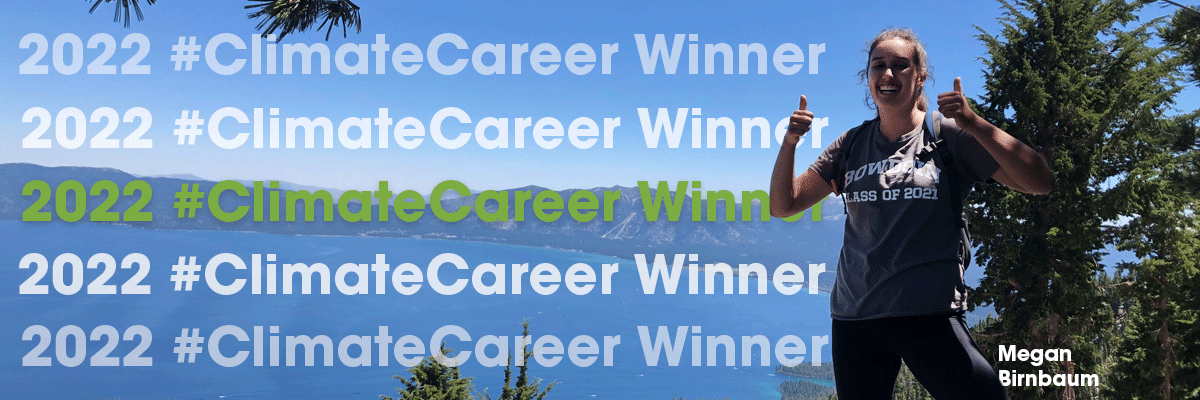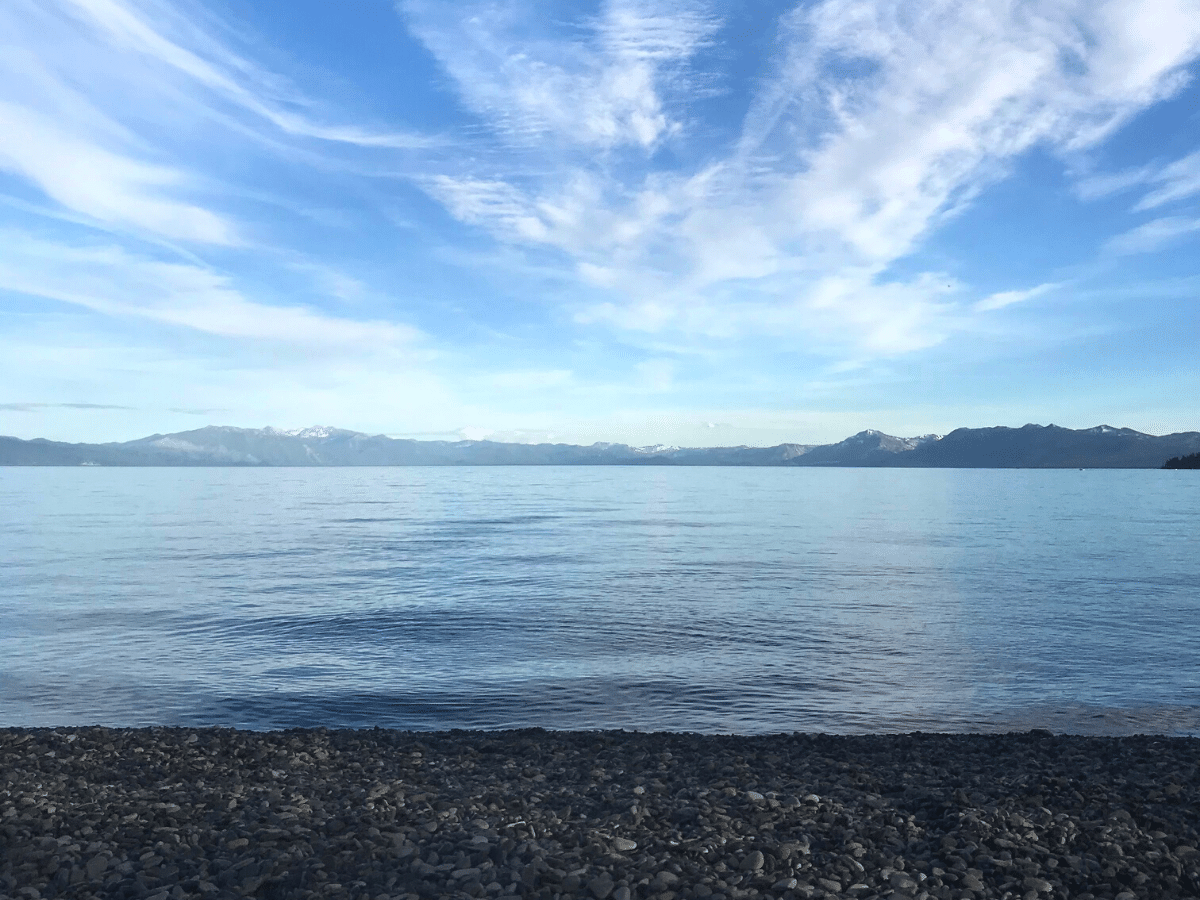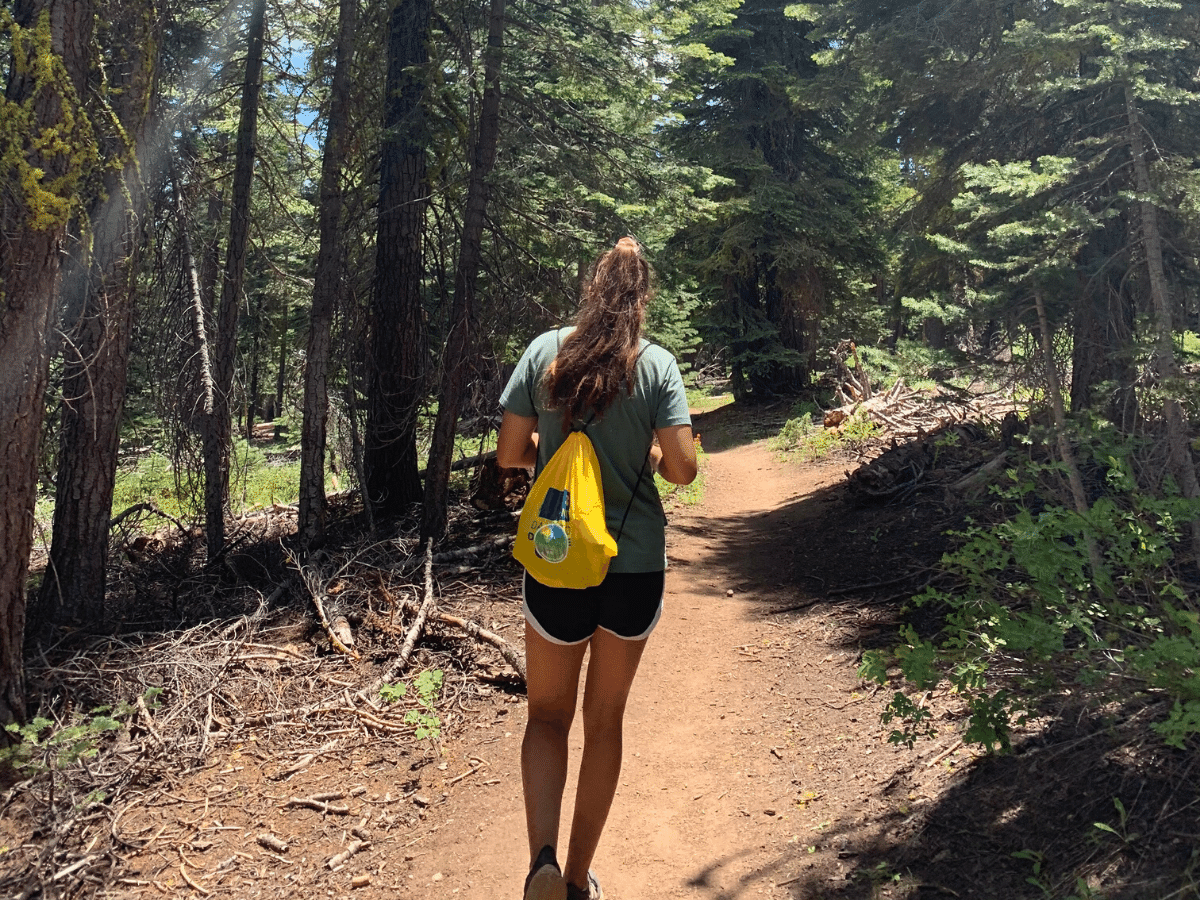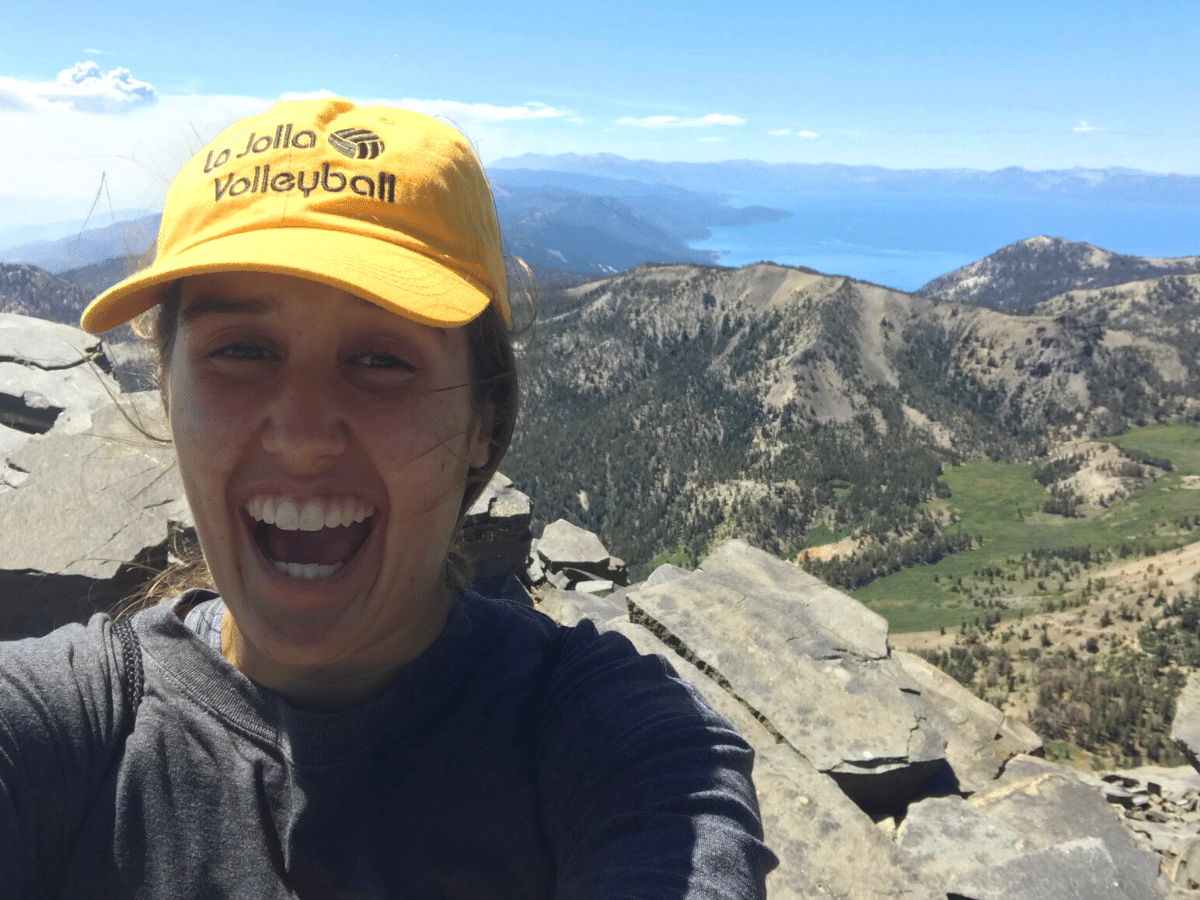#careers
Meet Our 2022 #ClimateCareer Winner Megan Birnbaum!

Megan here! I’m so excited to be joining TCI’s team as this year’s Climate Career winner. I graduated from Bowdoin College last spring with a degree in Environmental Studies and Psychology and a minor in Hispanic Studies. Having grown up in San Diego, California, and attending college in Brunswick, Maine, I’ve been so lucky to experience the beauty that nature from coast to coast has to offer. I’ve also noticed and experienced how the climate crisis has impacted both locations, from worsening wildfires in California, to increasing sea levels and temperatures in Maine.
I grew up taking road trips with my family from southern to northern California (ranging from 8- to 12-hour drives depending on destination). By the time I was 8 years old, fires had derailed or interrupted so many road trips (due to road closures, smoke hazards, etc), that the running joke in the family was that “it isn’t a road trip without a fire.”
But it wasn’t until high school and really even college that I connected the dots and was able to see that climate change was responsible for the increasing intensity and severity of California wildfires. The initial realization and true understanding of the realities and severity of the climate crisis were overwhelming; even paralyzing. But learning that there are so many different pathways for action has helped propel me forward.
“By the time I was 8 years old, fires had derailed or interrupted so many road trips (due to road closures, smoke hazards, etc), that the running joke in the family was that “it isn’t a road trip without a fire.””
In the summer of 2019, I had the opportunity to work in forest research at the Lake Tahoe Environmental Research Center (TERC), working on a sugar pine reforestation project addressing the loss of sugar pine trees due to mountain pine beetle infestation – a problem exacerbated by climate change. I also helped manage TERC’s outdoor education center to teach the public about the ecosystems of the lake, its surrounding forest, and how scientists are working to protect both in the face of the climate crisis.
I was able to build upon this knowledge in my final Environmental Studies research project – a deep dive into fire risk in the Lake Tahoe basin. I visited Tahoe again the summer after completing this research – sure enough, smoke from fires in the region became intense enough to force an early end to my visit. The dramatic changes to the landscapes and homes we cherish is becoming more common as the climate crisis intensifies, and is unfortunately an experience with which many young people resonate.

This is a unique type of loss and fear (ever heard of solastalgia?) – it is unique not only in the sense of powerlessness it can quickly elicit, but also in the ways it can direct us towards hope and action when we realize that it can be mitigated. My Tahoe fire research, for example, taught me that a combination of practices that protect individual homes and communities from fire, and local and regional forest management approaches, can significantly reduce the risk of catastrophic fire.
When I first perused TCI’s website, I kept thinking how much I wished I had access to these educational and actionable resources when I was first learning the true scope of the climate crisis. I’m so grateful for this opportunity to reach youth climate activists through social media (check out our TikTok!) to hopefully help them move out of feeling stuck and into action! Connecting the dots of the climate crisis allows us to relate everything in our lives to climate change, and thus affords us limitless avenues for talking about climate change – conversations that are increasingly crucial.
“This is a unique type of loss and fear (ever heard of solastalgia?) – it is unique not only in the sense of powerlessness it can quickly elicit, but also in the ways it can direct us towards hope and action when we realize that it can be mitigated.”
Studying fire risk has opened my eyes to the social injustices of climate change. California’s farmworkers, primarily Latinx and Indigenous, are underpaid and exposed to harsh conditions without adequate protections, especially when it comes to heat and smoke from wildfires. And forest/fire policy consistently dismisses land management practices cultivated by Indigenous peoples and communities. Racial justice absolutely needs to be the central and primary consideration informing policies and practices addressing the climate crisis. This is another reason I’m excited to be connecting with youth climate leaders in my new role with TCI – they know that racial justice and equity need to be prioritized in the fight against the climate crisis, and are already leading the way.

In an internship working with a policy advocacy organization based in D.C., I had the chance to help create a coalition of business leaders, farmers, investors, and advocates to work towards the creation and adoption of policies supporting more sustainable and just agricultural and food practices. I focused on bringing in leaders from Black and Indigenous organizations, including reaching out to owners of sustainable clothing businesses. Again I had the opportunity to build upon this experience back at school when I completed research on racial injustices in the food system and in alternative food spaces, focusing on how to center the leadership of BIPOC communities and activists working towards food justice.
In November 2008, as wildfires ravaged southern California and blackened the sky above my elementary school, I remember feeling shaky with anxiety as I walked across campus. In October 2020, when ash fell again from the sky (which had also happened plenty of times since 2008), I decided to put on Christmas music and pretend that the ash was snow, because humor was the only way I knew how to exist in the pandemic-ridden smoke-pocalypse that had become our reality. (At the same time, recognizing my luck & privilege to exist this way while the wildfires that burned 10s and 100s of miles from my home were destroying houses and, too often, lives). Creating social media content has given me this avenue to implement humor, but also perspective, as tools to keep us moving forward, and to make climate conversations palatable, sustainable, and change-making.

